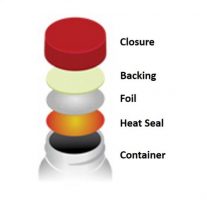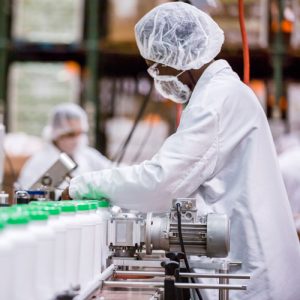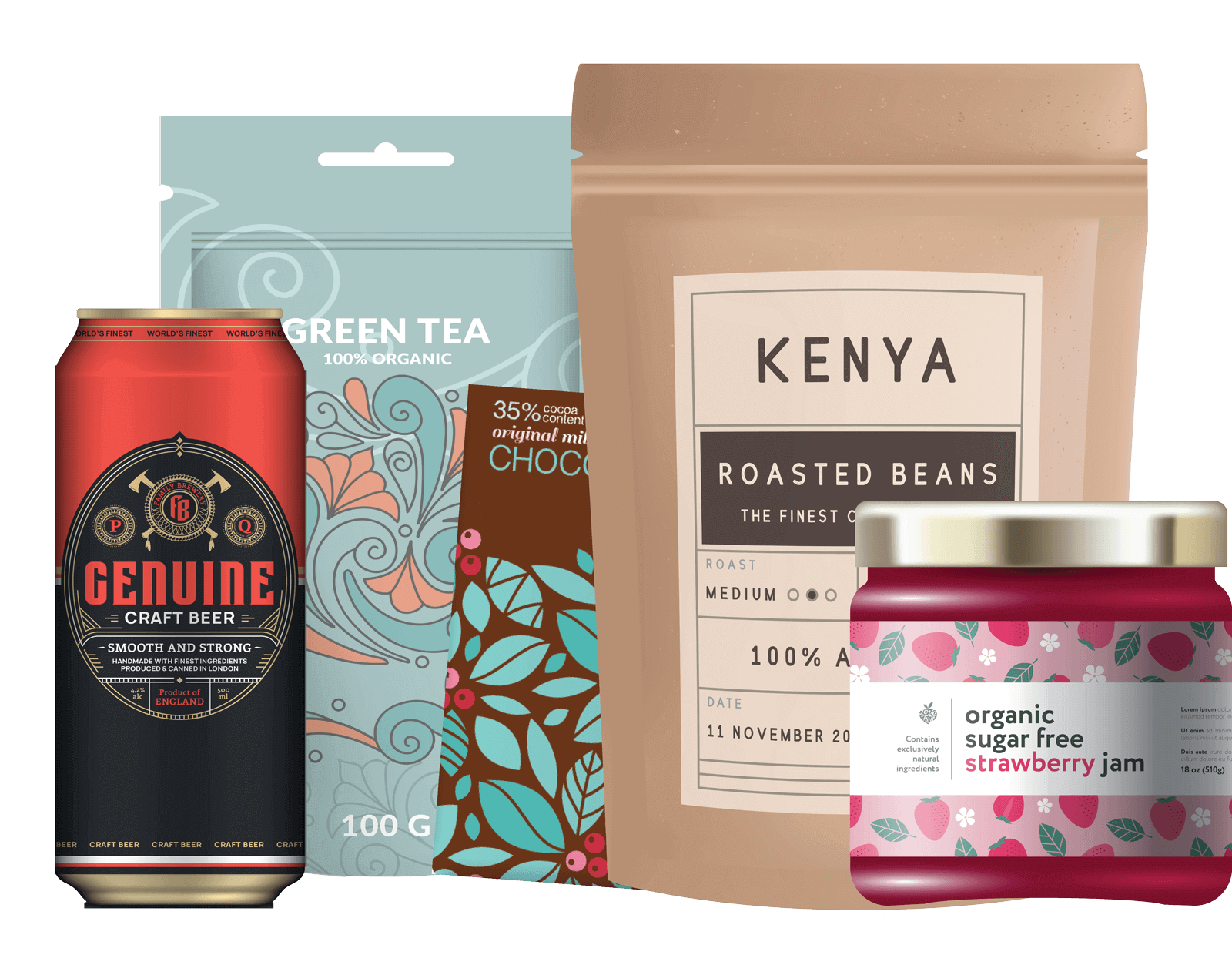One aspect of packaging that often gets overlooked is sealing. You can have the perfect design and label for your product but if your package isn’t sealed correctly, it will all be for nothing.
In a previous post, we talked about the importance of closures for nutraceutical packaging and also co-hosted a webinar with Enercon Industries. While the focus was on the nutraceutical industry, there was a lot of information dedicated to induction seals that can be used for packaging across various industries.
What are Induction Seals?
Induction seals play an important role when it comes to a product’s packaging. Induction sealing creates a hermetic seal through a closure that is lined with a heat-seal foil cover. The hermetic seal ensures the package is airtight and preserves the materials by keeping any contaminants from entering.
This type of sealing is used across many industries including pharmaceutical, nutraceutical, automotive, food and beverage, as well as health and beauty. Induction seals can be used in any industry that has a jar or bottle involved.
Recently, there has been a heavy emphasis on using induction seals for products that are being sold and shipped through ecommerce. FedEx, UPS and Amazon are encouraging online retailers to use induction seals on their products to help safeguard them during shipping. Ensuring safer shipping is just one example of the benefits induction seals provide.
The Benefits of Using Induction Seals
The use of induction seals offers numerous benefits to companies that use this type of sealing on their products’ packaging. First and foremost, induction seals provide tamper evidence. Because there is a heat seal that offers a layer of protection, the seal provides a secure seal that allows tampering to easily be identified.
Secondly, they preserve the contents inside the packaging by preventing oxygen and moisture from entering the package. This extends a product’s shelf life and quality from production to consumption or use.
As mentioned previously, another benefit of using induction seals is the prevention of leaks with packages that contain a liquid content. The seal provides extra strength and security to the package’s opening to prevent leaking whether it is being shipped or transported from the store to a consumer’s home.
The Science Behind How Induction Seals Work

The anatomy of an induction seal is really quite simple. The process of using an electromagnetic field when applying the seal to the package is where science plays a role. Induction seals, in their most basic form, are made of three main layers:
- Backing
- Foil
- Heat seal
The layer closest to the opening is the heat seal that is attached to the package. Next, there is a layer of foil placed over the seal, which is followed by a backing that provides structure to the liner.
Since induction sealing is a non-contact process, it is important to understand how the process works without an individual actually touching the package. For this process to be successful, there are three key principles that need to take place: pressure, heat and time.
To ensure the integrity of the induction sealing process, there has to be adequate cap application torque. This torque allows caps to be put on with enough pressure to complete the seal of the liner to the container. Without the correct amount of pressure, the cap will not seal correctly and this will result in leaks and other issues.

The last remaining factor for the induction sealing process is time. For this process, time is dictated by the speed at which the conveyor is moving. The amount of time that package spends in the induction sealing machine is dependent on the speed at which the conveyor can send packages.
How MJS Packaging Can Help
MJS Packaging works closely with Enercon Industries to come up with the best possible packaging and induction seal options for your products. No matter your industry, induction seals are an important feature for packaging your products. Both the experts at MJS Packaging and Enercon are here to help you with your induction sealing solutions.
If you are interested in learning more about induction seals and how MJS Packaging can help, please contact us. You can also view the nutraceutical webinar information on induction seals on Enercon’s website.




